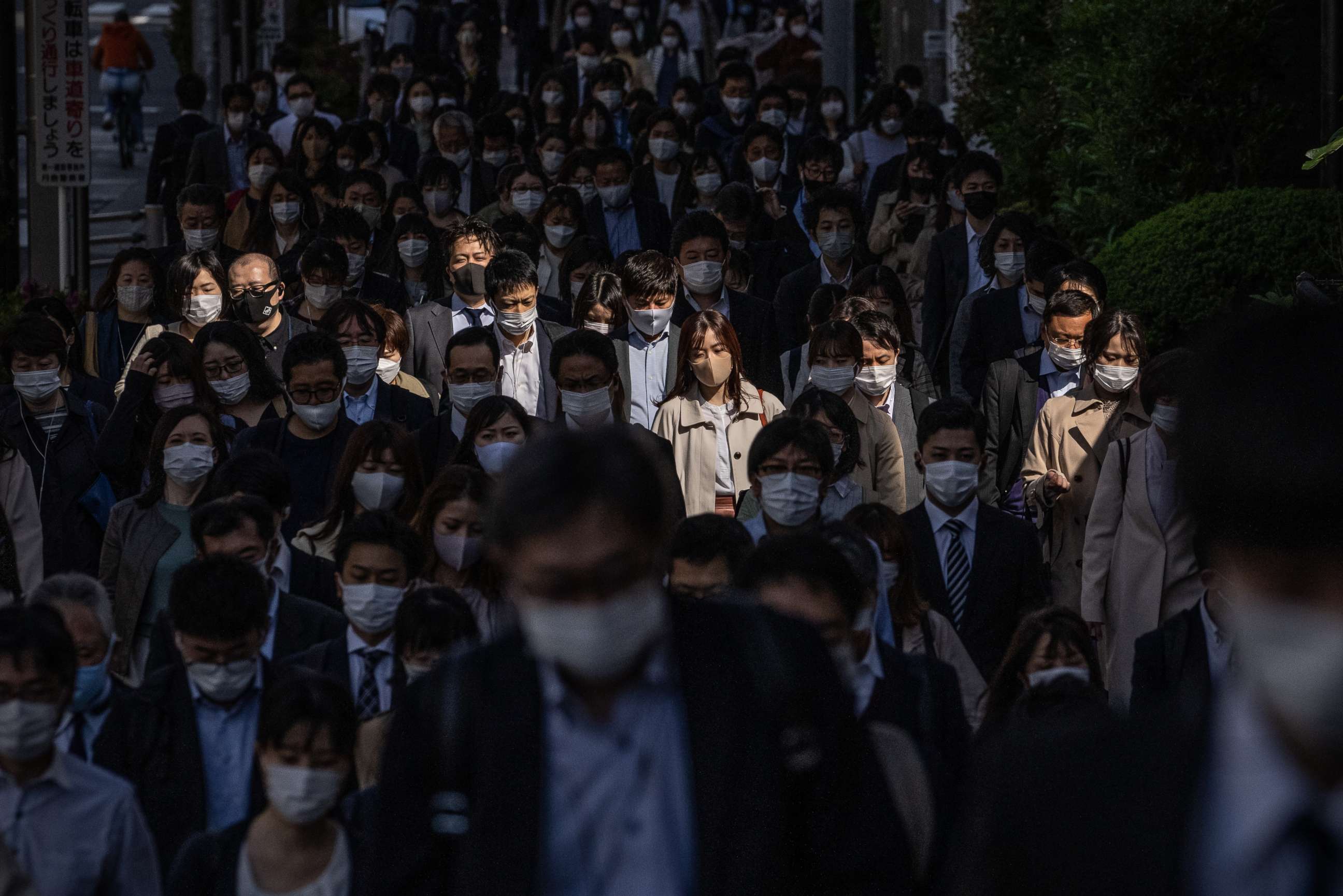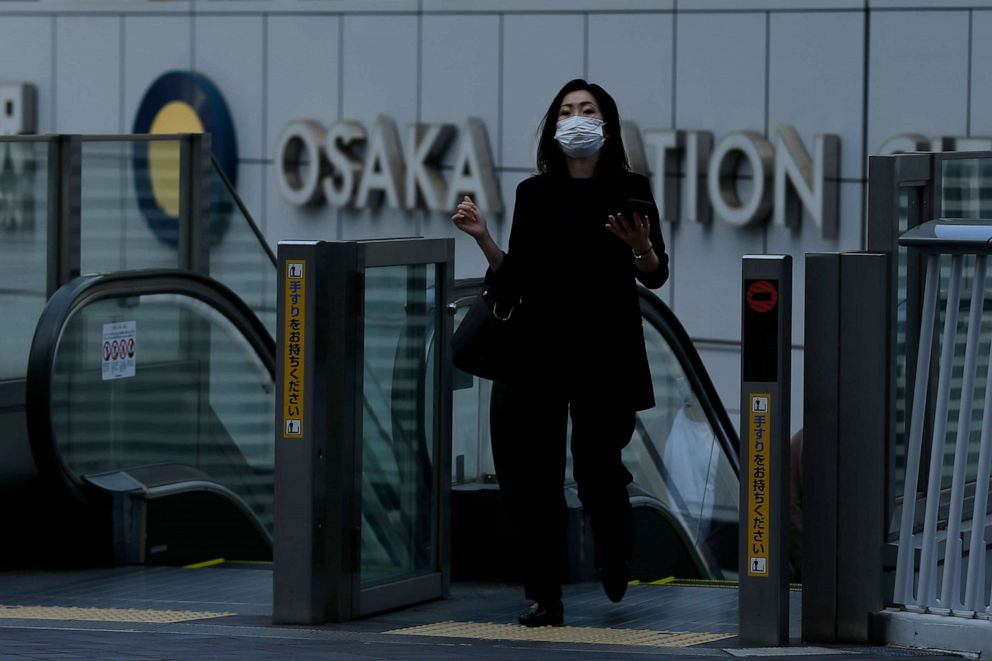Japan declares 3rd state of emergency for Tokyo, elsewhere ahead of Summer Olympics
The Tokyo Olympics are slated to open on July 23.
TOKYO and LONDON -- Japanese Prime Minister Yoshihide Suga has declared a third state of emergency for Tokyo and three other urban prefectures in an effort to curb the spread of COVID-19 ahead of the already-delayed Summer Olympics.
During a national address Friday night, Suga announced that a state of emergency for Tokyo, Osaka, Kyoto and Hyogo prefectures will begin Sunday and last through May 11. The move was earlier endorsed by a panel of experts advising the Japanese government on COVID-19. Both the governors of Tokyo and Osaka prefectures have requested the emergency status.
"The end should be in sight," the prime minister said. "The state of emergency is now declared. From the bottom of my heart, I ask for your cooperation."
Suga said the new measures will be "stricter" than with previous declarations and will include unspecified limitations on gatherings as well on bars, restaurants and non-essential businesses. He also mentioned subsidies for businesses that shut their doors during the state of emergency.
Dr. Shigeru Omi, head of the COVID-19 advisory panel, spoke more specifically about the new measures when answering questions from reporters, saying that some businesses, particularly eateries, will be asked to shorten their hours to reduce the frequency of person-to-person contact. Shopping centers will be encouraged to close.
"In Japan, we are entering a new phase," Omi said, "the infections are becoming more widespread in younger populations."

The state of emergencies issued in January and last year declared only non-mandatory requests and, with no penalties for non-compliance, relied heavily on residents to practice "jishuku," or "self-restraint," in meeting the terms, such as working from home when possible and reducing person-to-person contact. In February, when Suga extended the emergency status for the greater Tokyo area, the Japanese government took a tougher approach, allowing governors to issue binding orders for non-essential businesses to cut hours or close. Those who complied were offered compensation, while those who didn't faced penalties.
Japan is grappling with another resurgence in COVID-19 infections, believed to be fueled by a new, more contagious variant of the virus that was first detected in the United Kingdom last year. Osaka, which has been under quasi-emergency status since April 5, is the epicenter of the country's latest resurgence and has reported the highest daily number of newly confirmed cases than any other area. The prefecture saw 1,167 new cases on Thursday, while Tokyo reported 861. Overall, Japan has confirmed a total of 551,898 cases, including 9,800 deaths, according to official figures released Friday by the Japanese Ministry of Health, Labour and Welfare.
"Perhaps the variant spread faster than we expected. That is why we are taking these stronger measures, focusing on Golden Week season," Suga told reporters, referring to a stretch of Japanese holidays that runs from April 29 to May 5.

Japan launched its mass COVID-19 vaccination campaign in mid-February, months after other major economies did so and amid concerns over whether the drive would inoculate enough people in time for the Tokyo Olympics. The rollout has been slow and less than 1% of Japan's 126 million people have been vaccinated so far.
The 2020 Summer Olympics were supposed to kick off in Japan's capital last year on July 24. But in late March, amid mounting calls to delay or cancel the upcoming Games due to the coronavirus pandemic, the International Olympic Committee and Japanese organizers announced that the event would be held a year later. Organizers have been dogged in their determination to go forward with the Games ever since, despite the public's concerns over COVID-19.
By the time the latest state of emergency is slated to lift on May 11, there will be about 10 weeks before the Tokyo Olympics open on July 23.




